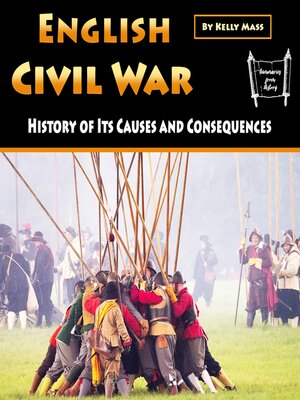
Sign up to save your library
With an OverDrive account, you can save your favorite libraries for at-a-glance information about availability. Find out more about OverDrive accounts.
Find this title in Libby, the library reading app by OverDrive.



Search for a digital library with this title
Title found at these libraries:
| Library Name | Distance |
|---|---|
| Loading... |
This audiobook is narrated by a digital voice.
The English Civil War (1642–1651) was a series of conflicts and political struggles between Parliamentarians ("Roundheads") and Royalists ("Cavaliers") in England, with wider ramifications across Scotland and Ireland. The primary issues at stake were England's governance and matters of religious freedom.[2] The war consisted of three phases, with the first (1642–1646) and second (1648–1649) wars fought between supporters of King Charles I and the Long Parliament, while the third (1649–1651) saw battles between supporters of King Charles II and the Rump Parliament. The Scottish Covenanters and Irish Confederates also played significant roles. Ultimately, the Parliamentarians emerged victorious after the Battle of Worcester on 3 September 1651.
The unique aspect of these civil wars was that they were not solely about determining who would rule, but also concerned the governance of the entire British Isles, including England, Scotland, and Ireland. The outcomes included the trial and execution of Charles I in 1649, the exile of his son Charles II in 1651, and the establishment of the Commonwealth of England under the personal rule of Oliver Cromwell from 1653 (as the Commonwealth of England, Scotland, and Ireland) and briefly his son Richard (1658–1659). The Church of England's monopoly on worship was ended in England, and the victors in Ireland consolidated the Protestant Ascendancy. Additionally, the wars set the precedent that an English monarch cannot govern without Parliament's consent, a concept further enshrined with Parliamentary sovereignty during the Glorious Revolution in 1688.







